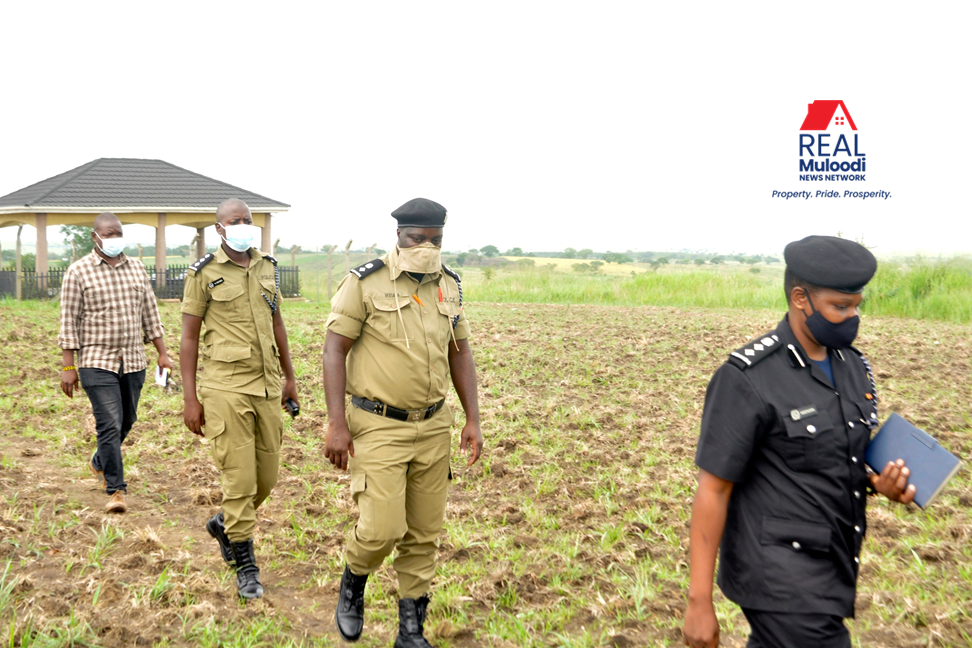UGANDA, Acholi | Real Muloodi News | Leaked documents have exposed a plan to allocate 320,000 acres of idle land in the Acholi Sub-region to private companies for commercial farming.
The revelations have sparked concerns that the project is a cover for large-scale land grabbing. The plan, known as the Parish-to-Market Model (PMM) programme, was launched by President Museveni in February as a post-conflict wealth creation initiative.
However, local communities have expressed fears that the project aims to deprive them of their fertile land. The scheme, which involves a Public-Private-Community Partnership, has faced significant opposition from the community, prompting calls for a thorough evaluation of its intentions and impact.
When the PMM programme was introduced, the government claimed to have secured 328,000 acres of community-owned land for large-scale commercial agriculture.
The Ministry of Agriculture, Animal Industries and Fisheries (Maaif) stated that the land would be used for the cultivation of avocados, macadamia nuts, and oil seeds.
However, concerns began to emerge as the community questioned the true motives behind the project. Preparatory meetings were held in Kampala, Entebbe, and Acholiland, with Operation Wealth Creation (OWC), a poverty alleviation initiative led by Gen Salim Saleh, playing a central role.
The involvement of OWC raised suspicions and intensified the opposition to the project.
In September 2021, officials from OWC and Maaif met to discuss the 328,000 acres of prime land. Subsequent meetings were held, involving various stakeholders, including Vice President Jessica Alupo, ministers, members of parliament, and community leaders from the greater north sub-regions.
The government expressed its support for integrating smart agriculture, afforestation, and biodiversity conservation in Acholiland.
The National Planning Authority (NPA) also held meetings to discuss the PMM proposal, which outlined plans for large-scale food and animal feed production.
The government’s active involvement raised concerns among local leaders and communities.
Paramount Chief David Rwot Onen Acana II, who heads Ker Kwaro Acholi, a traditional Acholi cultural institution, voiced serious concerns about the PMM programme.
He questioned the lack of consensus among the Acholi people and raised suspicions about the speed at which the project was being implemented.
Rwot Acana II highlighted the potential loss of communally owned land and urged caution in dealing with the project.
The involvement of private companies and the complex financial arrangements proposed under the PMM raised further red flags, as they appeared opaque and prone to manipulation.
Following the meeting held by Ker Kwaro Acholi, silence descended on the project. Officials from OWC and the private companies involved were unresponsive when approached for comments.
The lack of clarity surrounding the roles and interests of the parties involved, particularly Gen Salim Saleh’s role through OWC, added to the scepticism and caution exhibited by local leaders and lawmakers.
The Acholi Parliamentary Group (APG) decided to distance itself from the project until a thorough explanation was provided by Prof Ogenga Otunnu, the PMM coordinator.
The APG secretary general emphasised the need to understand the project fully before endorsing it.
Opposition to the PMM programme stemmed from concerns about the leasing and titling of land, which was a prerequisite for accessing loans and agricultural inputs.
Local leaders feared that this requirement would expose communities to potential land loss if they were unable to repay the loans due to crop failure or adverse weather conditions.
The involvement of private companies and the lack of clarity surrounding the.
READ MORE LIKE THIS:



